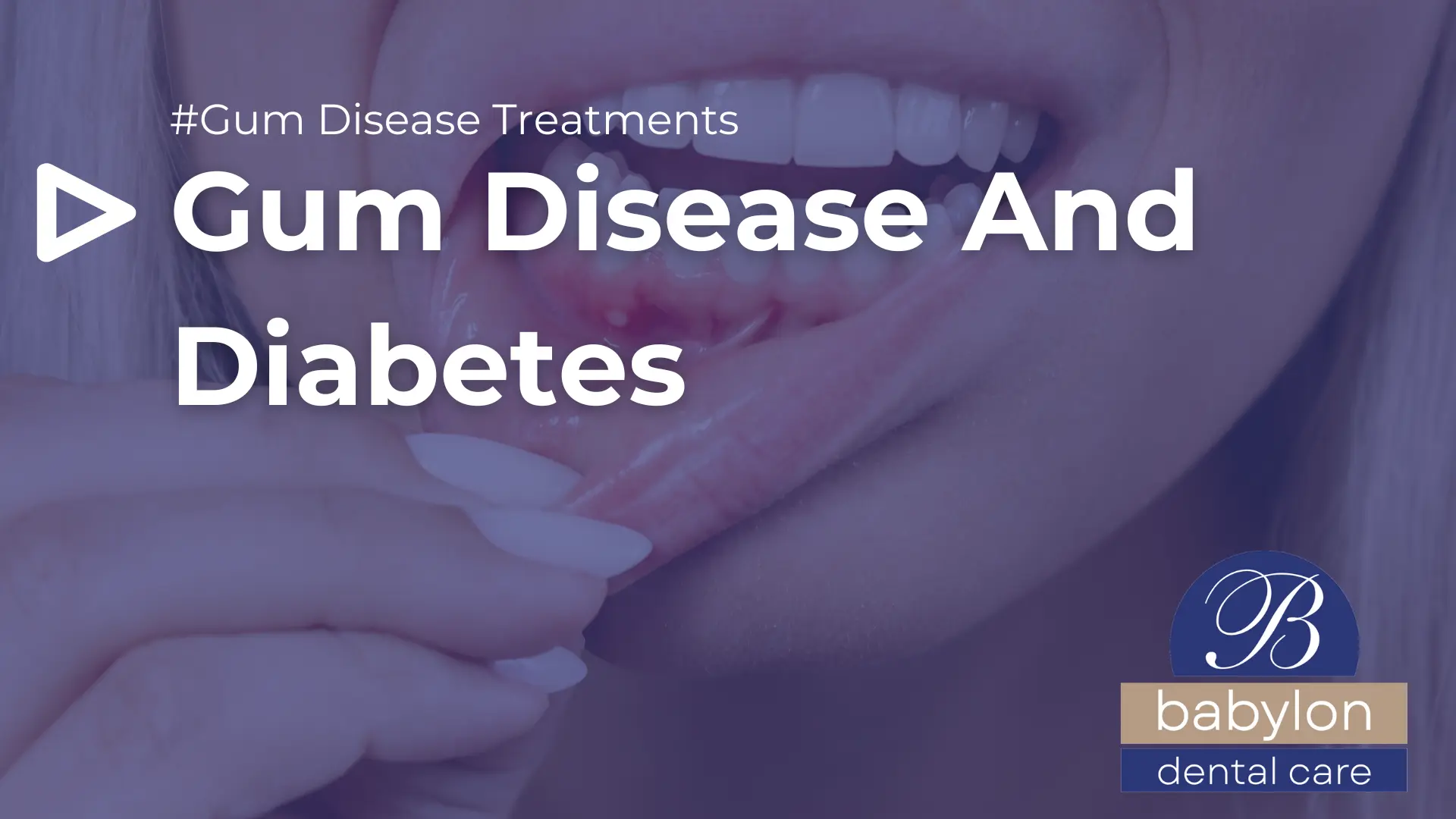Gum disease typically begins without you ever knowing you have it. Over time, the condition progresses and can slowly destroy your gums and teeth, impacting your smile. Unfortunately, for those with diabetes, the condition may put them even more at risk for developing gum disease and oral health complications.
The gum disease treatment experts of Babylon Dental Care want to help you maintain happy and healthy gums. While most diabetics understand the medical complications that can impact their bodies, they are not always aware of how diabetes can affect their smiles. The team at Babylon Dental Care wants to keep you informed. This guide will give you valuable information on how diabetes can lead to gum disease and what you can do to fight back. To learn more, call us at (631) 983-6665.
What is Diabetes?
Diabetes is a chronic medical condition that impacts how your body turns certain food products into energy. When a person eats, the body breaks that food down into glucose or sugar. Glucose is then released into the bloodstream, raising your blood sugar levels. When blood sugar levels go up, signals are sent to the pancreas to release the hormone insulin. Insulin helps control glucose levels while also allowing the body to store glucose in the liver, fat, and muscles. Insulin also regulates how the body metabolizes carbohydrates, proteins, and fats.
In diabetics, the body can’t make enough insulin, or it can’t use the insulin it does produce effectively. Blood sugar levels can remain too high and damage blood vessels and internal organs. Diabetes can eventually result in conditions such as heart disease, vision loss, and kidney problems.
There are three categories of diabetes, Type 1, Type 2, and gestational diabetes. Type 1 is thought to be the result of an autoimmune reaction where the body begins to attack its own cells. The reaction causes the body to stop producing insulin. 90 to 95 percent of people with diabetes are diagnosed with type 2. Type 2 diabetics cannot use the insulin they do have properly. Lifestyle changes like eating healthy and losing weight can delay the onset of type 2 diabetes in some people.
While there are treatment options for those with diabetes, there is no cure.
Gum Disease and Diabetes
While diabetes has been linked to a variety of other conditions, like cardiovascular problems, nerve damage, kidney disease, eye damage, and skin conditions, it can also cause problems for your teeth and gums.
Diabetes can impact a person’s oral health in multiple ways. First, having too much glucose in the bloodstream can mean that a person also has too much glucose present in their saliva. High sugar levels in saliva can create the perfect breeding ground for harmful bacteria. The bad bacteria can combine with food particles to cause plaque and tartar build-up. This build-up can trigger the hallmark inflammation and infections associated with gum disease.
Diabetes can also produce changes in blood vessels. The condition can cause fatty deposits to form inside vessels, restricting blood flow. Over time, people can experience decreased sensation in their extremities, such as their hands and feet. In severe cases, amputation may even be required because blood flow is not adequate to keep the extremities alive. This reduced blood flow can also impact the gums, weakening the soft tissue of the gums and the underlying bone.
Not only can diabetes result in gum disease, but diabetes also makes treating gum disease more difficult. Diabetes can impact a person’s immune system, making it harder for the body to fight infections like periodontitis and heal wounds like mouth sores and ulcers.
Signs of Gum Disease in Diabetics

- Swollen or puffy gum tissue
- Gums that are red, not a healthy pink
- Gums that feel sensitive or tender
- Bleeding while brushing or flossing your teeth
- Bad breath
- Bad taste in the mouth
- Loose teeth
- Pain when chewing
- A change in the way your teeth fit together when you bite down
- Gums that pull away from your teeth or teeth that look “longer.”
Gum Disease Prevention

Curbing bad habits like smoking can also help improve the health of your gums. Smoking is extremely bad for your oral health. It can also impact your immune system, making infections in the gums harder to treat. Diabetics have an even greater risk of developing gum disease due to the combination of their illness and the effects of smoking.
Actively managing diabetes can also help prevent gum disease. Carefully monitor and control blood glucose levels with the help of a physician. Keeping blood sugar levels in check can lower the amount of glucose in saliva. Eating a healthy and well-balanced diet may also contribute to better oral health. Diabetics may consider avoiding acidic and sugary drinks. These drinks can erode tooth enamel and feed harmful bacteria in the mouth.
Schedule an Appointment with Babylon Dental Care Today
Managing diabetes isn’t always easy. At Babylon Dental Care, we understand the unique oral health needs of diabetics. We want to take an active part in helping patients manage and avoid gum disease so that their mouth is the last thing they have to worry about.
If you are a diabetic and are concerned about gum disease or your oral health in general, contact our office or call us at (631) 983-6665 to make an appointment.

